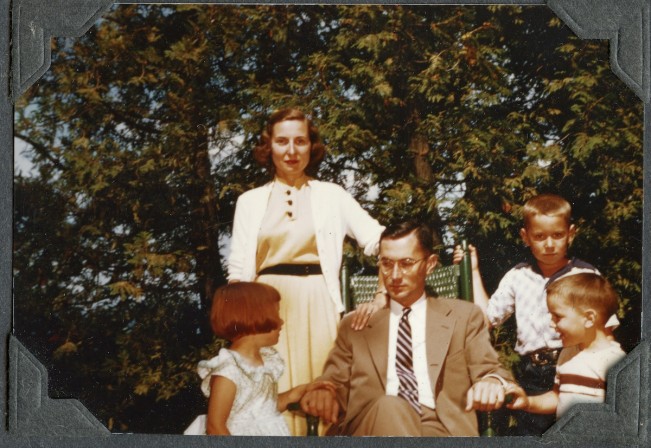By MCN Editor editor@moviecitynews.com
FIRST RUN ACQUIRES U.S. RIGHTS TO AWARD-WINNING FILMMAKER CARL COLBY’S THE MAN NOBODY KNEW
New York, NY (August 17, 2011) – First Run Features announced today that the company has acquired all U.S. rights to award-winning filmmaker Carl Colby’s riveting documentary THE MAN NOBODY KNEW: IN SEARCH OF MY FATHER, CIA SPYMASTER WILLIAM COLBY, which takes a look at the rise and fall of legendary CIA operative William Colby, one of the most influential spymasters in American history who also was a family man forced to keep secrets from his own wife and children. The film, which will open in New York on September 23, 2011 exclusively at the Lincoln Plaza Cinema before a limited nationwide rollout throughout October, was produced by Jedburgh Films, Act 4 Entertainment’s David Johnson and Guggenheim Productions’ Grace Guggenheim.
 “Carl Colby has crafted a moving and personal inquiry of a man who saw himself as a patriot, and whom others accused of being a war criminal. It is also a powerful examination of an institution that can save or destroy our way of life,” says Seymour Wishman, President of First Run Features. “We are thrilled to be working with everyone involved with this film.”
“Carl Colby has crafted a moving and personal inquiry of a man who saw himself as a patriot, and whom others accused of being a war criminal. It is also a powerful examination of an institution that can save or destroy our way of life,” says Seymour Wishman, President of First Run Features. “We are thrilled to be working with everyone involved with this film.”
THE MAN NOBODY KNEW: IN SEARCH OF MY FATHER, CIA SPYMASTER WILLIAM COLBY is a son’s riveting look at a father whose life seemed straight out of a spy thriller. Told by William Colby’s son Carl, the story is at once a probing history of the CIA, a personal memoir of a family living in clandestine shadows, and a most timely inquiry into the hard costs of a nation’s most cloaked actions. From the beginning of his career as an OSS officer parachuting into Nazi-occupied Europe, William Colby rose through the ranks of “The Company,” and soon was involved in covert operations in hot spots around the globe. He swayed elections against the Communists in Italy, oversaw the coup against President Diem in Saigon, and ran the controversial Phoenix Program in Vietnam, which influenced today’s legacy of counter-insurgency. But after decades of obediently taking on the White House’s toughest and dirtiest assignments, and rising to become Director of the CIA, Colby defied the President. Braving intense pressure, he revealed to Congress and the nation some of the agency’s darkest, most tightly held secrets and extra-legal operations. Now, his son asks a series of powerful and relevant questions about the father who was a ghost-like presence in the family home – and the intelligence officer who became a major force in American history, paving the way for today’s provocative questions about security and secrecy vs. liberty and morality. The film forges a fascinating mix of rare archival footage, never-before-seen photos, and interviews with the “who’s who” of American intelligence, including former National Security Advisers Brent Scowcroft and Zbigniew Brzezinski, former Secretary of Defense Donald Rumsfeld, former Secretary of Defense and Director of CIA James Schlesinger, as well as Pulitzer Prize journalists Bob Woodward, Seymour Hersh and Tim Weiner. Through it all, Carl Colby searches for an authentic portrait of the man who remained masked even to those who loved him most.
“We look forward to working with the fantastic team at First Run Features to bring Carl Colby’s important film to audiences,” said Act 4 Entertainment’s David Johnson. “I think it raises provocative and disturbing questions about the nature and consequences of engaging in covert action and whether the US is prepared to accept the often tragic result of such consequences. We hope this film will inspire a dialogue about the sacrifices by the brave Americans made in our name.”
Carl Colby’s previous films focused on a variety of notable subjects including Franz Kline, William de Kooning, Bob Marley, Frank Gehry, George Hurrell and Franco Zeffirelli, among others. His film credits include Legends in Light, a celebration of Hollywood glamour photographer George Hurrell; the award-winning film Voyager: The Grand Tour; and Ground Zero, a documentary on designs for the World Trade Center site.
# # #
ABOUT FIRST RUN FEATURES
First Run Features has been a leading indie film distributor since 1979. Two years ago, the company celebrated its 30th Anniversary with a major retrospective at the Film Society of Lincoln Center. Recent releases include the Academy Award-nominated documentary The Most Dangerous Man in America: Daniel Ellsberg and the Pentagon Papers, Joe Berlinger’s Crude, and Kings of Pastry, from filmmaking legends DA Pennebaker and Chris Hegedus. For more information, go to www.firstrunfeatures.com.
# # #













